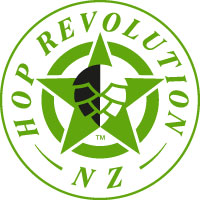When Nino Bacelle and Guido Devos started homebrewing together in the ’80s, Belgian beer was in the midst of a sea change. Consolidation was afoot—larger industrial breweries were swallowing up smaller concerns, an earlier generation of brewers had reached retirement age, and few among the younger generation were interested in carrying on the tradition. The beers they loved and grew up drinking were disappearing—subsumed by a wave of sweeter, mass-produced crowd-pleasers. While there were a few historical holdouts, such as Saison Dupont and Orval, bitterness had nearly exited from the lexicon of Belgian brewing.
Bacelle grew up around beer—his father was a guezesteker, or blender—and he longed for the beers he had tasted growing up. Together with Devos, he launched a beer brand, De Ranke, to make the kind of beers that they wanted to drink. First was their Guldenberg Tripel, followed closely by what is now considered a paragon of hop-forward Belgian ale: the aptly named XX Bitter.
Today these beers feel familiar, but they were groundbreaking at the time. They remain unique today due to the peculiarities of De Ranke’s process. In this episode, Bacelle explains that process and more, including:
- the challenges of buying and brewing with whole-cone hops exclusively
- working with growers to source local Belgian hops
- the qualitative difference between whole-cone and pellet hops
- brewing with a kettle purposely designed for whole-cone hops
- using closed fermentation vessels to mimic open fermentation
- two-stage cellaring with a free-rise fermentation, followed by a cooler secondary fermentation, then bottle-conditioning
- stylistic changes over time in classic Belgian abbey styles
- differences in hop terroir
- De Ranke’s approach to aging and blending acid-forward beers
And more.
“The Belgian public is so used to sweetness from all the industrial beers they know,” Bacelle says. “Sweetness is easy selling, and bitterness needs a public that is more aware … and is willing to experience other tastes.”
This episode is brought to you by:

G&D Chillers
What if you could chill your beer with a more efficient chiller? The Answer? G&D Chillers new Micro Channel Condensers! G&D’s Micro Channel Condensers are highly efficient in hotter regions, use a fraction of the refrigerant over traditional chillers which provides less opportunity for leaks along with lower global warming potential. G&D Chillers’ Engineers are committed to green technology design, while developing a more energy efficient chiller for the brewing industry. Contact G&D Chillers today at gdchillers.com

This episode brought to you by BSG and Rahr Malting Co., the home of fossil-free malt. Rahr’s headquarters in Shakopee, Minnesota is powered by renewable electricity. Malthouses and kilns are fed by an electrostatic boiler fueled by agricultural byproducts, much of which is waste from the malting process. By eliminating the use of natural gas, Rahr Malting Co. reduces CO2 emissions by 260,000 tons per year while filling 25% of the US brewing industry’s malt needs. Put the power of Rahr Malt in your beer at go.bsgcraft.com/Contact-Us

Looking for innovation in your next beverage break-through? Think outside the purée box and let your brand stand out with Old Orchard's craft concentrate blends. Even smoothie seltzers can benefit from the extra boost of flavor and color. Old Orchard is based in the Greater Grand Rapids, Michigan area—also known as Beer City, USA—and supplies craft beverage categories ranging from beer, wine, and cider to seltzer, spirits, and kombucha. To join the core of Old Orchard's brewing community, learn more at oldorchard.com/brewer

BrewMonitor, from Precision Fermentation, is the first real-time, comprehensive fermentation monitoring solution. It works with your existing fermentation tanks to track dissolved oxygen, pH, gravity, pressure, temperature, and conductivity in real-time, from any smartphone, tablet, or PC. BrewMonitor provides detailed insight into your fermentations that helps improve beer consistency, reduce tank-time, and increase overall efficiency–saving your brewery time and money. Get started for 30 days, risk-free. Visit precisionfermentation.com/brewing.

From the rotatable pick-up tube on Rogue Brewing's pilot brewhouse to the integrated hopbacks on Sierra Nevada's twin prototyping brewhouses, Ss Brewtech has taken technology they invented working with world-renowned industry veterans and made them available to every craft brewer. To learn more about Ss Brewtech's innovation list, head over to SsBrewtech.com

If you’re looking for a direct partnership with an independent hop grower who is as fanatical about flavour and quality as you are, join the revolution! Hop Revolution’s only reason for being is sustainably farming and processing New Zealand’s most flavoursome hops. They get that great beer is not brewed to a past or a future ideal. It’s an ongoing journey of fresh thinking. Hop Revolution really is only here for your beer. Let them flavour your thinking stateside directly from Hop Revolution, or through Crosby Hops or Mill95. Learn more @ HopRevolution.co.nz. or drop in for a chat at CBC Booth 1811.
